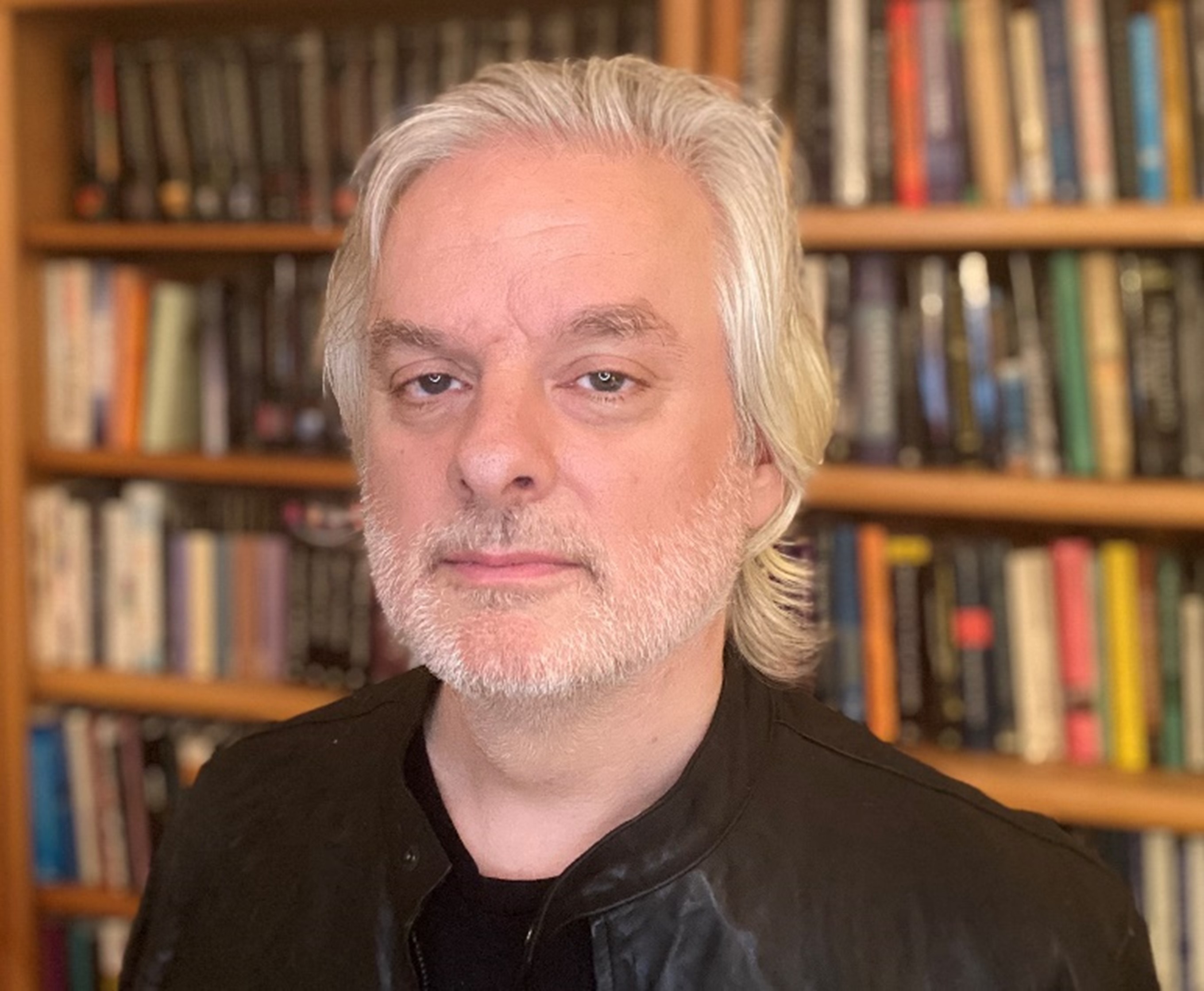Fordham Research Day 2024
Fordham University’s Research Day Celebration - Monday, April 22, 2024
Walsh Library, Rose Hill Campus, 2691 Southern Blvd, Bronx, NY 10458
Organized by
Office of the Provost
Office of Research
University Research Council
Research Deans’ Council
Schedule of events:
10:00 am - 10:30 am - Award Ceremony
O’Hare Room, 4th Floor
- Introduction: George Hong, Chief Research Officer and Associate Provost for Research
- Opening Remarks: Tania Tetlow, President
Award Presentation
Chair: Dennis Jacobs, Provost and Senior Vice President for Academic Affairs
Distinguished Research Award in the Humanities - Kirsten Swinth
Distinguished Research Award in Interdisciplinary Studies - Jie Ren
Distinguished Research Award for Junior Faculty - Mohamed Rahouti
Distinguished Research Award in the Science and Mathematics - Christopher Koenigsmann
Distinguished Research Award in the Social Sciences - Marc Conte
10:30 am -11:30 pm - Keynote Speech
O’Hare Room, 4th Floor
Chair: Jonathan Crystal, Vice Provost for Academic Affairs
Keynote Speaker: David Chalmers, Professor of Philosophy and Co-director, Center for Mind, Brain, and Consciousness, New York University
“Can ChatGPT Think?”
Generative AI systems such as ChatGPT and its many relatives have taken the world by storm. They show many impressive abilities that would require intelligence if done by humans. But is ChatGPT really intelligent? Can it understand what it says? Is it conscious? Can it think? If not, could a successor to ChatGPT think? These are difficult questions that require philosophical analysis. Dr. Chalmers will address some aspects of these questions here.
CONCURRENT SESSION A:
Fordham – IBM Research Fellows & Interns Forum
11:30 a.m. – 12:30 p.m.
O’Hare Room, 4th Floor
Chair: Ann Gaylin, Dean, Graduate School of Arts and Sciences
Presenters:
-
Navid Asgari, Associate Professor, Strategy and Statistics Area of the Gabelli School of Business, and research intern Reanna Ishmael, undergraduate student of Global Business, Concentration in Digital Media and Technology, Minor in Mathematics, Gabelli School of Business
“Differential, Finetuned, RAG-based Attribution, Measurement (DiFRAMe) for Foundational Models: Application to Knowledge Evolution Analysis”
IBM Partner: Eitan Farchi, DE, AOT, Software and AI Testing Analysis and Reviews (STAR), Haifa Research Lab, Haifa, Israel
-
Juntao Chen, Assistant Professor, Department of Computer and Information Sciences, Graduate School of Arts & Sciences, and research intern Son Tung (Bill) Do, Computer and Information Sciences M.S. student in Data Science, Fordham Graduate School of Arts & Sciences
“Adversarial Manipulation of Learning in Dynamic Systems and Games”
IBM Partner: Yingdong Lu, Research Staff Member, Mathematical Sciences, IBM Research, Yorktown Heights, NY
-
Frank Hsu, Distinguished Professor, Department of Computer and Information Sciences, Fordham Graduate School of Arts & Sciences, and research intern Sean Patten, Master of Science student, Department of Computer and Information Sciences, Fordham Graduate School of Arts & Sciences
“Sentiment Analysis through Combinatorial Fusion”
IBM Partner: Pin-Yu Chen, Chief Scientist, RPI-IBM AI Research Collaboration; Principal Research Staff Member, Trusted AI Group, IBM Thomas J. Watson Research Center, NY, USA
-
Wenqi Wei, Assistant Professor, Department of Computer and Information Sciences, Fordham Graduate School of Arts & Sciences and research intern Xirong Cao, graduate student Master of Science, Computer Science program, Fordham Graduate School of Arts & Sciences
“Invisible Watermarking for Audios Generation Diffusion Models”
IBM Partners: Divyesh Jadav, Manager & STSM, Applied Intelligence Research, IBM Research-Almaden, San Jose, CA, and Mu Qiao, Research Group Leader, Master Inventor, Member of IBM Academy of Technology, IBM Quantum Ambassador, Almaden Research Center, San Jose, CA, USA
CONCURRENT SESSION B:
Faculty Research Abroad Program Forum
11:30 a.m. – 12:30 p.m.
Lower Level, Classroom 041, Walsh Library
Chair: Lisa Lancia, Director of International Initiatives, Office of the Provost
Presenters:
-
Kirk Bingaman, Professor, Graduate School of Religion and Religious Education
“Religion in the Digital Age: An Irreversible Process”
-
Heining Cham, Professor, Department of Psychology, Graduate School of Arts & Sciences
“Women’s depression and well-being during COVID-19 in Mexico: A longitudinal analysis of family and work dynamics”
-
Eric Chen, Professor, Psychological and Educational Services, Graduate School of Education
“Transgender Individuals’ Navigation of Identity Disclosure and Interpersonal Relationships in the U.S. and the Philippines”
-
Su-Je Cho, Professor, Curriculum & Teaching, Graduate School of Education
“Use of Protective and Preventative Strategies to Address Bullying and Cyberbullying Behaviors in the United States and the Philippines”
-
Ki-Eun Jang, Assistant Professor, Theology, Graduate School of Arts & Sciences
“The Other Nineteenth Century: Global Race Theory and the Migration of Christianity in the Korean Peninsula”
12:30 pm Lunch
O’Hare Room, 4th Floor, Walsh Library
Keynote Speaker: David Chalmers, Professor of Philosophy and Co-director, Center for Mind, Brain, and Consciousness, New York University
“Can ChatGPT Think?”
Generative AI systems such as ChatGPT and its many relatives have taken the world by storm. They show many impressive abilities that would require intelligence if done by humans. But is ChatGPT really intelligent? Can it understand what it says? Is it conscious? Can it think? If not, could a successor to ChatGPT think? These are difficult questions that require philosophical analysis. Dr. Chalmers will address some aspects of these questions here.
David Chalmers is a University Professor of Philosophy and Neural Science and co-director of the Center for Mind, Brain, and Consciousness at New York University. He is the author of The Conscious Mind (1996), Constructing The World (2010), and Reality+: Virtual Worlds and the Problems of Philosophy (2022). He is a former president of the American Philosophical Association and the Australasian Association of Philosophy. He is known for formulating the “hard problem” of consciousness, which inspired Tom Stoppard's play The Hard Problem, and for the idea of the “extended mind,” which says that the tools we use can become parts of our minds.